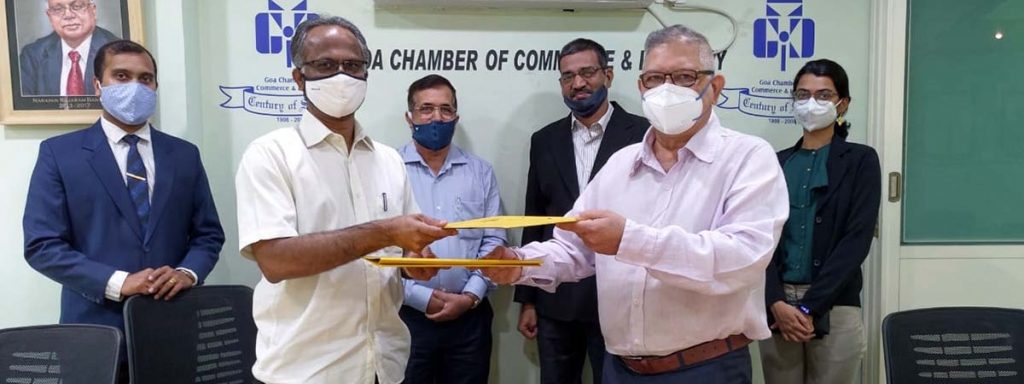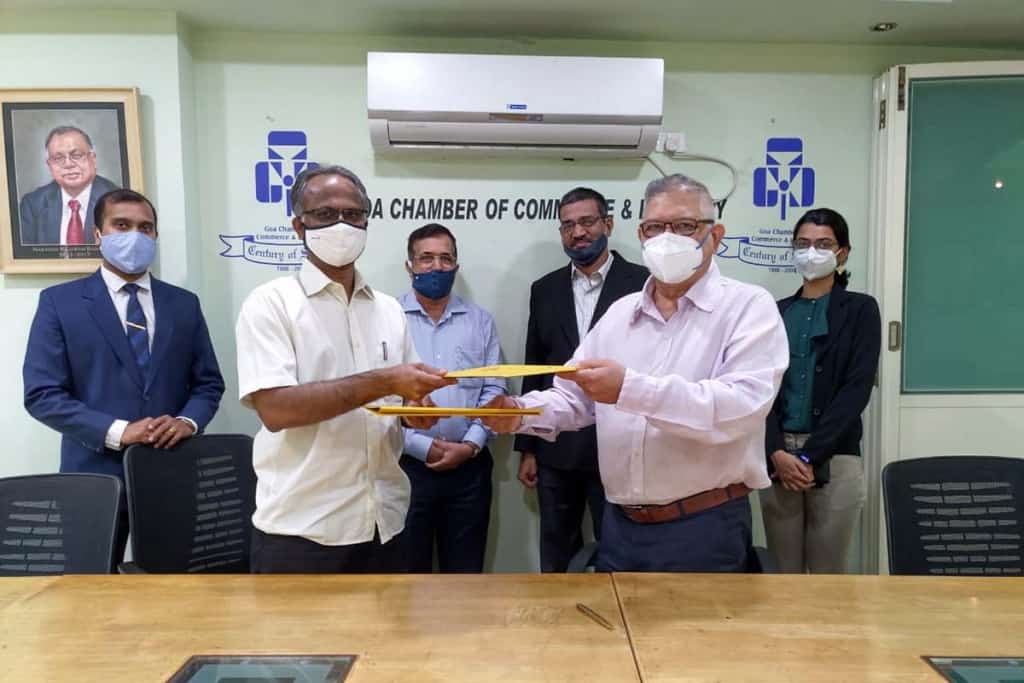(Don Bosco College, Panjim) – Don Bosco College Panjim and the Goa Chamber of Commerce and Industry have signed a memorandum of agreement to implement development programs, along with promoting innovation and entrepreneurship. This will increase the development of skills and collaboration between schools and industries.
The memorandum highlights eight potential areas essential for industry and institution engagement: curriculum design, industry visits, student internships, skills development programs, lectures with expert guests, development of faculty, fostering business incubators, and promoting entrepreneurship among students.
The Goa Chamber of Commerce and Industry is the state’s premier nonprofit organization for business, support services, and networking. It represents and liaises between business organizations and government agencies. One of the association’s main objectives is to bridge the gap between the field of education and that of industry.
This is a turning point for Don Bosco College. Thanks to the agreement, the institute will have access to many resources and take part in important chamber events. Don Bosco College offers a rich academic experience in the heart of Panjim, a national capital for arts and entertainment, innovation and technology, business, and entrepreneurship.
“Collaborative partnerships like this enrich student learning,” said Father Gus Baek, director of Salesian Missions, the U.S. development arm of the Salesians of Don Bosco.
“While education is at the heart of what Salesian schools and colleges provide, ensuring that students are able to make an easy transition from academics to the workforce is paramount in their success. This partnership paves the way for a closer working relationship and gives students access to entrepreneurial training and internships, providing them real-world experience.”
– Father Gus Baek, Director of Salesian Missions
Access to professional training and workforce development services is highly valued by youth in India. The country, which is home to 1.34 billion people (18 percent of the world’s population), will have overtaken China as the world’s most populous country by 2024, according to the World Economic Forum. While India has the world’s largest youth population, it has yet to capitalize on this, leaving some 30 percent of this population without employment, education, or training.
India has the world’s fourth-largest economy but more than 22 percent of the country lives in poverty. About 31 percent of the world’s multidimensionally poor children live in India, according to a report by the Oxford Poverty and Human Development Initiative.
India’s youth face a lack of educational opportunities due to issues of caste, class, and gender. Almost 44 percent of the workforce is illiterate and less than 10 percent of the working-age population has completed secondary education. In addition, many secondary school graduates do not have the knowledge and skills to compete in today’s changing job market.
Source: MissionNewswire


